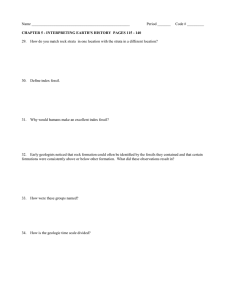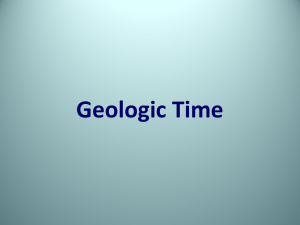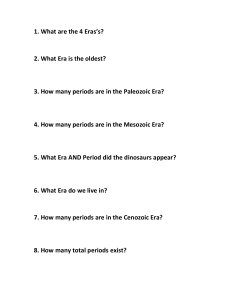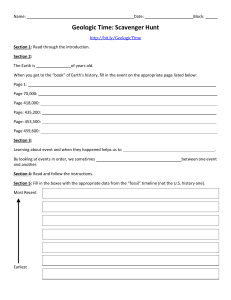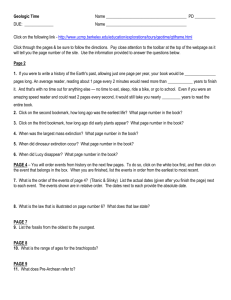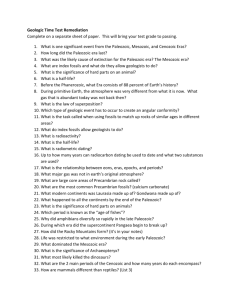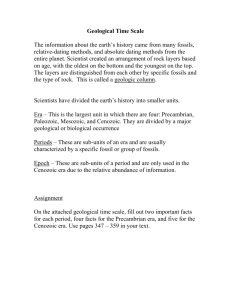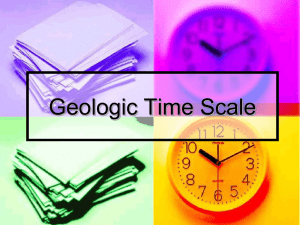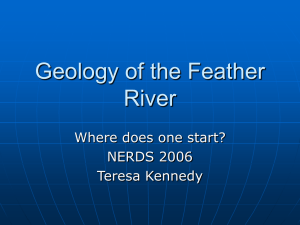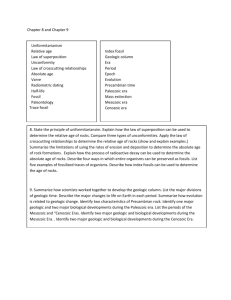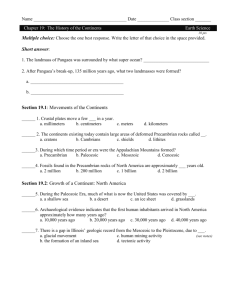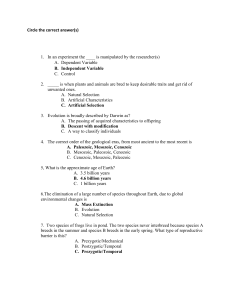History of Life: Fossils, Geologic Time Scale Worksheet
advertisement
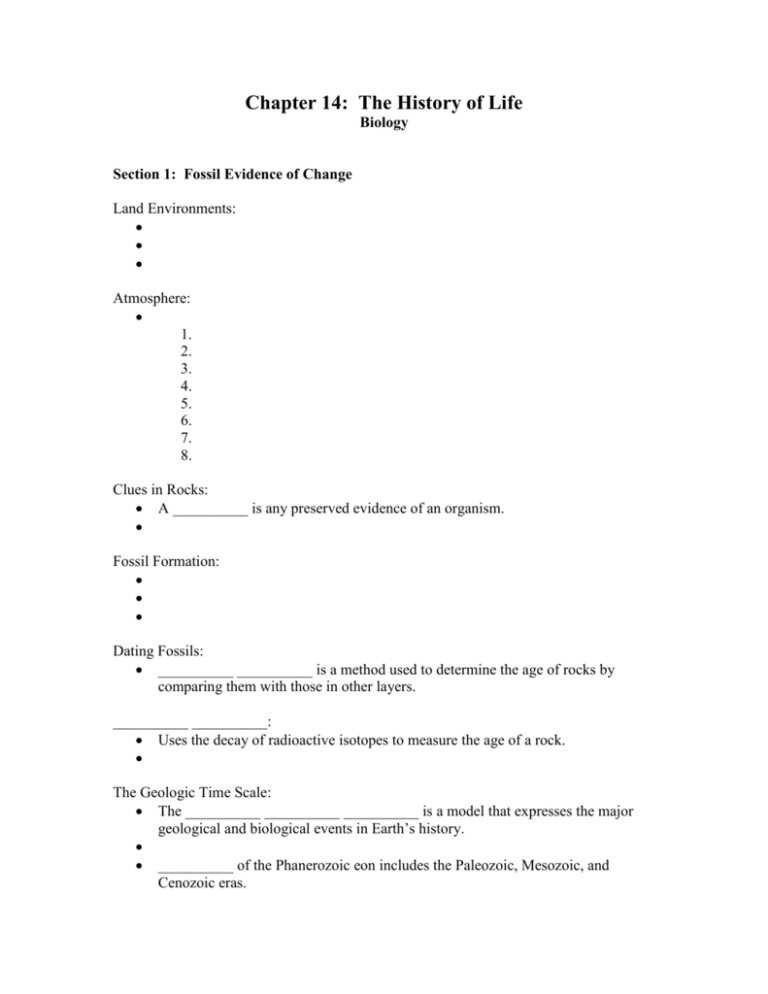
Chapter 14: The History of Life Biology Section 1: Fossil Evidence of Change Land Environments: Atmosphere: 1. 2. 3. 4. 5. 6. 7. 8. Clues in Rocks: A __________ is any preserved evidence of an organism. Fossil Formation: Dating Fossils: __________ __________ is a method used to determine the age of rocks by comparing them with those in other layers. __________ __________: Uses the decay of radioactive isotopes to measure the age of a rock. The Geologic Time Scale: The __________ __________ __________ is a model that expresses the major geological and biological events in Earth’s history. __________ of the Phanerozoic eon includes the Paleozoic, Mesozoic, and Cenozoic eras. Each era is divided into one or more __________. Precambrian: The Paleozoic Era: The ancestors of most major animal groups diversified in what scientists call the __________ __________. The Mesozoic Era: __________ __________ describes the movement of several large plates that make up the surface of Earth. The Cenozoic Era: Section 2: The Origin of Life Origins: Early Ideas __________ __________ is the idea that life arises from nonlife. The __________ __________ __________ states that only living organisms can produce other living organisms. Origins: Modern Ideas Making Proteins: Genetic Code: Cellular Evolution: Photosynthesizing Prokaryotes: __________ __________ __________: The ancestors of eukaryotic cells lived in association with prokaryotic cells.
